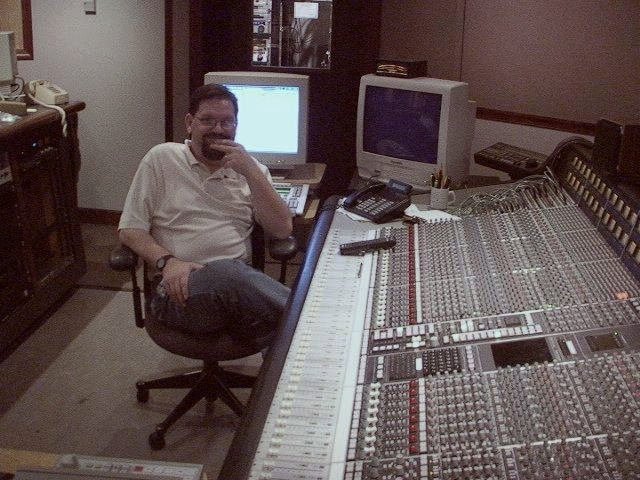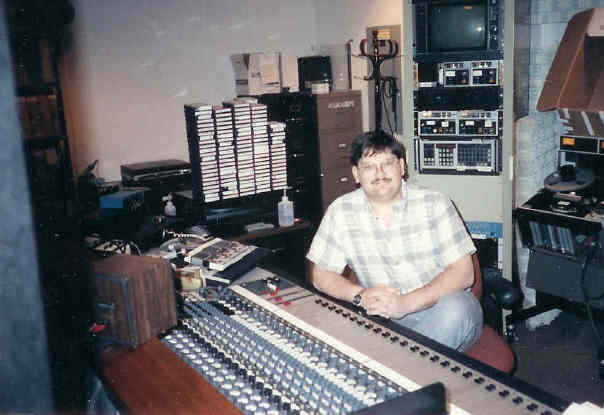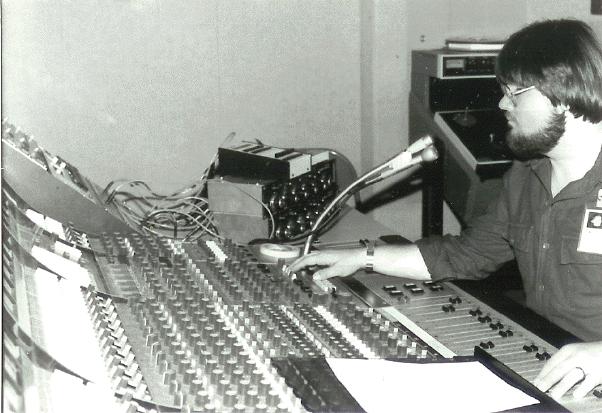
 |
|
#16
|
||||
|
||||
|
Quote:
Interestingly enough, in video production there is a practice that is rather crassly referred to as "leaving a turd in the road." The idea is that some producers who have to submit their work for review by a management board will intentionally make an obvious mistake that they hope will draw the board's attention to itself so that they are so distracted that they ignore any other shortcomings in the piece. Or at least that is the theory. It's like the magic trick called the "French Drop." Flashy thing over here makes you not look over there. When the piece comes through post-production, the technical staff inevitably catches the error, red-flags it, and the producer sheepishly has to explain his intent. This practice irritates the crew because they now know they will be needlessly creating another version soon after. Do not try this at home. Bob
__________________
"It is said, 'Go not to the elves for counsel for they will say both no and yes.' " Frodo Baggins to Gildor Inglorion, The Fellowship of the Ring THE MUSICIAN'S ROOM (my website) |
|
#17
|
|||
|
|||
|
Nothing to add, but just wanted to let you guys know there are lurkers out here....really interesting stuff, this forum is great!
|
|
#18
|
|||
|
|||
|
Yes, and true! Honest, that really happened. The crazy part, to me anyway, is that even in a DAW, editing a 1 syllable word is next to impossible. It can be done, but it's a tough edit to do seamlessly. I had to sift through at least 4 or 5 takes to find one that would even work. Then the new half had to be pitch corrected to match, time corrected and crossfaded by milliseconds. Long story short, that edit took 30 minutes minimum. This was in an audio post production suite that, at the time, cost $380 per hour. So the Turner networks spent $190 to edit the word "the" in a 30 minute documentary. To be honest, I though the original "the" sounded better.
At least that show was aired. Imagine the ones we worked on that the powers that be decided to can. Jeez, I guess back in the 90's money was growing on trees. |
|
#19
|
|||
|
|||
|
Quote:
But a great story about the foibles of people who don't have to pay for stuff like this. Man!... - Glenn
__________________
My You Tube Channel |
|
#20
|
||||
|
||||
|
Quote:
The first movie to have a totally digital music soundtrack was Star Trek the motion picture in 1979. From that point forward the production process began moving to digital. Meanwhile, George Lucas' company Lucasfilm began reforming theater audio reproduction with its THX standard. In the '90s a hybrid playback technique was developed with the audio being played back from CDs and synchronized with the video playback. That was around the time of which you speak. With the digital reproduction age we were offered a far wider dynamic range that allowed shocking loud punches from the soundtrack. With that came a technique called "dynamic reservation." We all know that theater reproduction systems are capable of incredible volume. What you may not know is that, on a strategic level, modern film mixing is done backwards. They know how loud they can get, they know how loud they want to get, and how much of an impact they want to support their presentation. To be able to hit you with those loud passages, they have to reserve headroom and run the movie quieter. They map all that out and mix accordingly. My favorite example is the opening of Master and Commander. When the movie opens there isn't even music. Everything is quiet and you strain to hear the sounds and dialog. But all of a sudden the ship is attacked and the results are audibly overwhelming. They wanted to blow your brains out with sound so they had to run the intro quieter. There is a philosophical decision going on there. I liken it to popular music. In the 1940s, pop was recorded with a single mic. The balance was created by pulling the singer(s) out front of the ensemble and closer to the mic. The further you pulled them forward the more vocal you got. Recordists of the day simply wouldn't have considered burying the voice enough to loose words or lines. Neumann GMBH eventually designed a mic, the U-47, specifically to highlight the human voice in such a way that it jumped out from an orchestra. When the 1960s rolled around there was a philosophical shift. Producers of the modern pop were willing to bury the lead vocals in order to have more instrumental impact and to have the loudest record. They literally chose to bring up the background to the point where it challenged the foreground. So, with the greater dynamic range of digital, modern movies and TV have been offered the opportunity to do things with sound that were never possible before. My wife wanted me to watch a couple of episodes of the NBC series Grimm last night. We listened on our home theater system via Prime, which gave us the full, original dynamic range. You can imagine I've got a decent surround system because I mix this sort of stuff. They mixed this series exactly as I discussed above - reserving headroom for horror "stabs" of sound to surprise you. And they really pummeled you with music and sound effects every few minutes when they wanted the effect. I spent the time waiting to pull in my neck. The result was that the dialog was extremely low and hard to hear unless you cranked up the system. When it originally aired it went through the NBC broadcast system, who would have compressed the audio signal pretty heavily so it would be more listenable through a typical built-in limited TV speaker system. If you have a home theater system, check to see if it has a "compressor" function or "dynamic range" control. This will pull in the extremes and allow you to run the whole program louder without blowing out your brains. Your TV might have this as well. My wife has chronic migraine so loud noises can hurt her. I typically will use this function to protect her. It drives her nuts to sit through me tweaking the menus to do it but she benefits from it. All the best, Bob
__________________
"It is said, 'Go not to the elves for counsel for they will say both no and yes.' " Frodo Baggins to Gildor Inglorion, The Fellowship of the Ring THE MUSICIAN'S ROOM (my website) |
|
#21
|
||||
|
||||
|
Quote:
Do you remember that in the middle of all those edits on mag tape, your razor blade could get magnetized? It would show up as a subtle click or thump in your edit. You would think it was because the incoming or out-going portion of the edit had a previous sound on it so you would trim a tiny bit off, but the click would still be there. You'd shave a little more and it would be just as loud. Somewhere along the way, as you were repeatedly trimming, it occurred to you that the blade was magnetized and each time you trimmed it introduced that thump. You take the blade over to the tape demagnetizer and run it through, then edit out a little sliver on each side, and that would be the end of the problem. But it caused some harrowing moments as you edited, especially if you weren't afforded the luxury of editing a safety copy. Quite a bit of my work was done right on the masters, with my neck on the line for each edit. Thirty-two hours of that over a weekend and I was toast! Bob
__________________
"It is said, 'Go not to the elves for counsel for they will say both no and yes.' " Frodo Baggins to Gildor Inglorion, The Fellowship of the Ring THE MUSICIAN'S ROOM (my website) |
|
#22
|
|||
|
|||
|
Quote:
I was imagining the comments from JKlotz being about digital editing. I have done a fair amount of cutting, splicing and editing on analog tape, but I cannot imagine doing what you were doing with little syllables. 32 hours of that would be incredibly taxing. I have also experienced that magnetization of the razor blade and the click it causes. I finally arrived at the same conclusion as you did, but it took me a while to figure out why it was happening. From an editing standpoint, I do appreciate digital technology. I imagine you do, too.  - Glenn
__________________
My You Tube Channel |
|
#23
|
|||
|
|||
|
Quote:
And then there are the passages in movies where the actors just plain mumble. There is some of that, too.  Both my wife and I still have excellent hearing in our early 70s. Sometimes we have to turn on the English subtitles just to figure out what they said for one passage. Then I turn the subtitles off again, because they are a distraction if they are not needed. Both my wife and I still have excellent hearing in our early 70s. Sometimes we have to turn on the English subtitles just to figure out what they said for one passage. Then I turn the subtitles off again, because they are a distraction if they are not needed.I had considered some time ago the idea of connecting up a compressor to our big sound system that we use in our studio for the big TV up there. Maybe I will do that. I have a decent spare stereo compressor I could use. Thanks for the detailed explanation. It addresses a lot of questions I've had over the last few years about the huge sound volumes in places. - Glenn
__________________
My You Tube Channel |
|
#24
|
||||
|
||||
|
Quote:
 Resetting a Solid State Logic recording console to make a change to a mix used to take an hour or more. Then the change could be made and the various mixes could be squirted out. Now I load up the project and it comes right up. I miss my analog gear with its big knobs but darn, this is faster. Bob
__________________
"It is said, 'Go not to the elves for counsel for they will say both no and yes.' " Frodo Baggins to Gildor Inglorion, The Fellowship of the Ring THE MUSICIAN'S ROOM (my website) |
|
#25
|
|||
|
|||
|
Yes, the stuff even I have in my little studio is amazing and very fast.
But, wow, that console in front of you is very impressive!!!  - Glenn
__________________
My You Tube Channel |
|
#26
|
|||
|
|||
|
Quote:
That console requires a separate room for the power supply with it's own air conditioning unit. It's a beast. |
|
#27
|
||||
|
||||
|
Quote:
We moved into the SSL from this:  It's a NEVE 8024 full of 1073s. We had two of these as well:  Neve 8058 full of 31102s. Great consoles! Bob
__________________
"It is said, 'Go not to the elves for counsel for they will say both no and yes.' " Frodo Baggins to Gildor Inglorion, The Fellowship of the Ring THE MUSICIAN'S ROOM (my website) |
|
#28
|
|||
|
|||
|
Cool stuff! Holy cow!
- Glenn
__________________
My You Tube Channel |
|
#29
|
|||
|
|||
|
What the heck are notes?

|
|
#30
|
|||
|
|||
|
The stuff that comes right after "We love it."
|